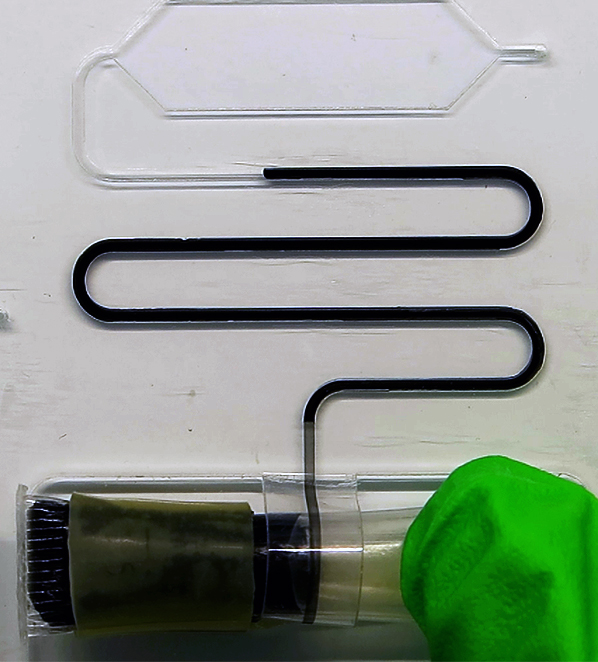Compressing entire labs into a computer chip

Once lab-on-a-chip (LOC) technology can be manufactured in a scalable cost-effective way, it could transform medicine in ways comparable with how microprocessors have changed our daily lives. In a new study reported in KTH News, a group led by SciLifeLab researcher Aman Russom (KTH) have developed a dispenser that could speed that revolution up.
Lab-on-a-chip technology focuses on transforming expensive health care laboratories into affordable, portable chips that can perform various tests at different points of care. A transition that is already in place for some LOC devices, such as home pregnancy tests.
While LOC technologies in many cases are too expensive to be of value outside the research lab, a group led by SciLifeLab researcher Aman Russom (KTH), has created a device that is believed to tackle the cost-efficiency challenge. The device dispenses and stores liquids that can be used on a range of diagnostic LOC platforms, and has an estimated manufacturing cost of $2 to $6. It can also perform techniques such as filtering, separation and mixing liquids, consolidating all the functions on a single device without the multiple components today’s dispensers consist of, which are costly to produce.
The device consists of a tube with an aperture covered by an elastic membrane. It is activated when the internal pressure is larger than the force required to stretch the membrane and when the pressure reaches a critical level, the membrane stretches and provides a path for the liquid to discharge. The technology, which could also be used for packaging chemicals, cosmetics and food, was reported in Nature Communications.
“Our technology offers low cost on-chip storage and also performs important fluidic handling tasks, which we believe will have real impact on the delivery of healthcare at resource limited settings where affordable point-of-care diagnostic services are badly needed”, says Aman Russom.
More information: paper in Nature Communications, article in KTH News.




